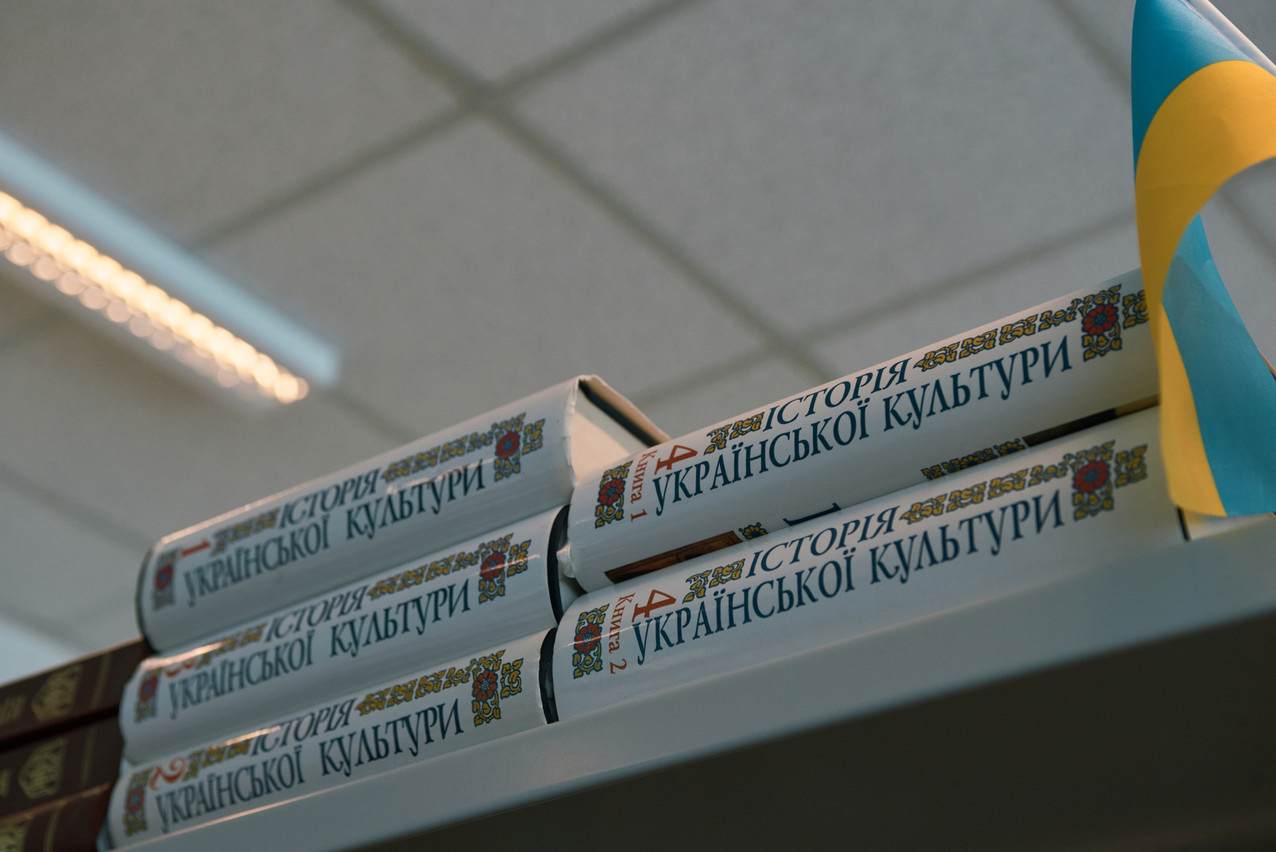Nearly 1,000 books for the library were sourced from the Kiev-based Library Krajna foundation, with funds being raised through a charity concert organised by RUHelp. The event took place in the auditorium of Banque du Luxembourg’s headquarters on 29 April and raised about €7,000.
Not-for-profit organisation LUkraine, which has been at the forefront of assisting Ukrainian refuges and giving a voice to the community, was at the origin of the idea and is the creator and manager of the library. It was LUkraine’s president Nicolas Zharov who brought an initial batch of books to the library. The Luxembourg City commune provided the location-- 276, rue de Rollingergrund—and the culture ministry also lent its support. The books were selected with the help of Ukrainian writer Olga Alexandrova who left the country after the war started.
“It was really a common effort [with help by] the Ukrainian writer [Alexandrova] and the Ukrainian foundation [Library Krajna]. In the end they selected very good modern and also classic literature written in Ukrainian,” explains Maria Tkachenko, representative of RUHelp.
The library is open to anyone who wants to read in Ukrainian, It stocks children’s books as well as literature, part of the school curriculum in Ukraine. A number of board games for children have also been made available with an event to be held in the future to present the games and encourage participation. Even before the inauguration of the library a few books had already been borrowed.
“It is really interesting to see their appreciation and to see how important it is for them to have a connection with their culture,” says Tkachenko. “And to have a place where they can come and meet other people and have meaningful, positive conversations.”
Prior to creating the non-profit organisation the four founding members of RUHelp were active in providing transport assistance to refuges from Ukraine to Luxembourg. Eventually they decided they needed a stronger foundation to be able to have a bigger impact and created RUHelp at the start of March.
“The initial idea was to unite Russians to help the victims of the war, certainly focusing on the Ukrainian refuges but also helping those who had fled Russia because of the oppression they faced when actively displaying disagreement with the war,” Evgeny Pereverzev, one of the founding members of RUHelp, explains with the help of a translator.
As the association has grown, other Russian speaking people have also lent a hand including some from Romania, Armenia, and Finland. The non-profit organisation aims to rebuild some of the bridges that were burned when the war started and to give a voice to Russians who oppose the regime that led them into a war with a country whose people they are intrinsically linked with.
“This war is a huge catastrophe between the Russian and Ukranian nations because we felt, especially on a cultural level, like one nation and one family,” says Tkachenko.
Updated on 27 June at 10.541am to clarify LUkraine's role as the library's originator and manager.
